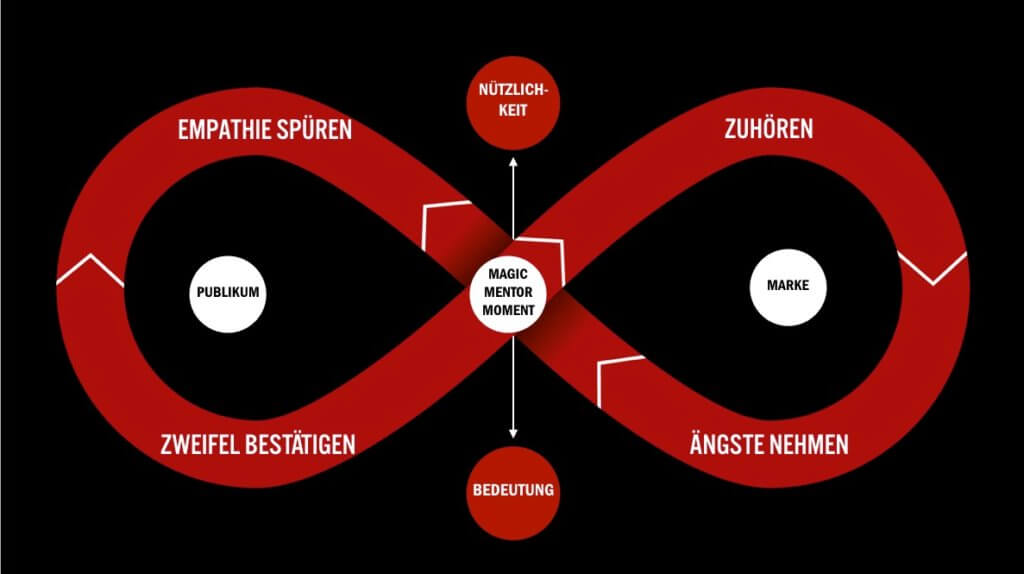Can you still remember your school days? What is the first thing that comes to your mind?
I usually think first of the teachers who suffered because of me, my playmates and our exuberant creative will. However, we also suffered from some teachers, but how! Mainly from those who pushed us into Morpheus' fierce embrace with their fadgas, which they dished out in all too lavish liberality, but still demanded that we stay awake. This kind of thing completely overwhelms any teenager.
To be honest, we were also quite - as they say in Austria - Rotzpipp'n (snotty little brats) and hardly left a single act unperformed. Many actions were funny, some I wouldn't do today, some I would stage better. But we had nothing else, not even internet - only boarding school, but school on Saturday.
The thought of the teachers I encountered then and since gives me a full-blown phimosis of horror even today. Many of them have lost about as much in the profession as Florence Foster-Jenkins at Carnegie Hall: powerful kings of dissonance.
And then there were teacher personalities who shaped me in the most positive sense, a few who are still vivid in my memory today.
TOO LAZY TO READ ON? THEN LISTEN TO ME:
In the blogcast, I read this recent blog article to you. With emphasis, of course!
NOW ALSO AVAILABLE ON APPLE PODCAST AND SPOTIFY!
Hopefully you also have such people in your biography! These people did not impress me as the best experts in their respective fields, or because they were particularly nice and indulgent to us wild guys. They impressed me with personality, character and attitude, without me being able to understand that so clearly back in my school days. They demonstrated something, lived something, sent signals to me and to us that being an adult need not inevitably mean the end of the world worth living in, as we feared, but that there is something that feels like the right place for you.
We couldn't put it that way, of course, but we felt it because we found these teachers casual. At that time, one found casual what is nice today.
Teachers help transform.
These people were more mentors to us than teachers, also because they probably felt that their job was about more than imparting knowledge.
I encountered teachers like that again and again. We weren't at school, they weren't teachers, but they transformed me.
Real teachers accompany people for a while in their transformation into the best version they can become, could become, as best they can. They take care of what is always misunderstood in the phrase "Non scholae sed vitae discimus" and reflexively respond with "What do I need the Pythagorean theorem for? I want to become an influencer!
The influencer business is supposedly running out of steam in the wake of the Corona vortex, I've read. Maybe the real influencers are getting wind under their wings instead? Those influencers whose influence no one can really escape, the teachers. Wouldn't it be great if the current experiences with home schooling and things like that gave rise to a new, better understanding of this system-relevant profession - among parents, students and especially the teachers themselves? My goodness, that would be important!
Teachers must be mentors! Not every mentor is a teacher, far from it, dear girls & boys.
The mentor is a substantially necessary figure for every heroine in a story. Often the mentor is even the one who calls the heroine to the journey and gives the impetus to move. But he is always someone who contributes something very crucial to making the heroine's journey a success. And every journey - even the one through the school years - is a transformation. At the end, we are different from what we were at the beginning, and if we succeed in what we are supposed to succeed in, we have become a bit better, more genuine, truer, ourselves.
Mentor and the Wisdom Goddess.
We first encounter the figure of Mentor in this designation in Homer's "Odyssey". Mentor, Odysseus' best friend, looks after the king of Ithaca's son Telemachos in his absence and advises him, as Odysseus himself does later, after his return home and gives both of them decisive impulses for their actions. Why was he so good at this? Because Athena, the goddess of wisdom, kept slipping into his body. So when you are inhabited by the goddess of wisdom, being a mentor is no longer a great art ...
Because we also need mentors on our wanderings - everyone has different paths and detours to take - we should be on the lookout to see whether the wise Athena is near our mentor, or Philotes alone, the god of friendship.
Friends can also be mentors in a story, and vice versa, but they do not have to be. Friends are primarily once helpers, companions or sidekicks of the heroine, accompany her, support her - are her equals or are led by her. Dorothy has Toto, the Scarecrow, the Tin Man and the Cowardly Lion at her side on her journey to the Wizard of Oz, Frodo Baggins hurries through Middle Earth with Sam, Merry, Aragorn & Co. in The Lord of the Rings, Harry Potter has Hermione & Ron ...
Mentor figures, unlike friends and companions, are usually above the heroine in the perceived hierarchy, which does not automatically have to do with the social pecking order, but in any case with the competence of the mentor figure in a matter relevant to both.
Your mentor, your teacher, your coach.
In daily life, we often encounter mentors in the function and role of a coach who accompanies us over a period of time on a topic where we need new perspectives, ordered perspective, focus and orientation. That is what mentors offer their heroes, and that is why we all need mentors all the time - teachers, coaches, counsellors. The boundaries are blurring here.
It is not typical with teachers, but practically the rule with mentors in stories, frequent with advisors and coaches, and not uncommon with influencers in this function: The mentor shares an experience with the heroine that he himself painfully acquired when he was in a similar situation as the heroine on his own hero's journey and stumbled. This is where a good part of his authority comes from: "I have experienced this and that, done wrong, learned from it, and I am now sharing what I have learned with you so that you can get there faster ..."
Sometimes mentors play tricks, again and again these characters are wizards: Genie for Aladdin, Obi-Wan Kenobi for Luke Skywalker, Gandalf for Frodo or Merlin for Arthur. Merlin even went so far as to set the scene for the future King Arthur by conjuring the sword Excalibur into the stone (or how did you think that thing got in there ...?).
Often a mentor is even the darker version of the hero, and the hero learns from the mentor about the mentor's bad example. We all do that sometimes, don't we? Someone behaves impossibly, we recognise the reflection of our own dark sides in it if we are clever, and learn from it if we are very clever.
A mentor helps the hero, nudges, gives a push, presses a tool into his hand, points - even where it hurts, and helps the growing pains.
If the hero is lost for words in the forest, the mentor shows where the trees are and in which direction the clearing could be found. If the heroine runs into the wall, the mentor opens the curtain so that light comes into the room and the door can be seen. Your mentor shows you in which corner the fishing rod is leaning, but you have to fish yourself. The mentor knows where the big stones are in the lake - you have to walk across the water yourself. Slipping and falling in, too.
And: Heroes can have several mentors at the same time, as Harry Potter had not only Albus Dumbledore, but also Remus Lupin and Sirius Black.
By the way, in this blog post in the series on the Hero's Journey you will find some additional thoughts on mentor figures.
The mentor in a thousand guises.
Oh yes: mentors come in many guises. It is not uncommon for a special book to do exactly what mentors do, or a song by Bob Dylan that stays with you all your life, a moving play, a discovery in an old dusty box, a picture that tells you more than words and moves you to a surprising healing realisation ...
These non-personalised mentors can get a lot going, but that is the end of their task, then their possibilities are exhausted.
Flesh and blood mentors, people like you & me, have a wide range of support for the heroes. One of the most important seems to be passive at first: asking and listening. People tell in order to be heard, and in doing so they explain a lot to themselves. A good mentor makes this possible, asks so that his protégé can speak, listens so that he understands.
And a good mentor knows what heroines need to come out of their procrastination and clear away the fog of doubt. Mentors and coaches are therefore particularly good at five things:
1) justify (but not condone) the hero's mistakes.
2) confirm his suspicions (but don't stay there picking)
3) allay fears (but don't drive them to recklessness)
4) give impetus to dreams (but do not feed illusions)
5) help to defeat opponents and opposing forces (but not to take away the fight).
When we have something to sell, we do well to awaken that inner story-truth. Where a brand or a salesperson in person succeeds in creating the momentum of usefulness and meaning as a mentor, the Magic Mentor Moment ignites and an almost unstoppable relationship arbesque begins to run its course. Brands are mentors, not heroes!

The uncomfortable partner.
At these magical places, mentors, coaches, teachers and advisors are ready to pick up the heroes where they are and ask, show, inspire. And sometimes they also get involved when things get critical, disturb, irritate, stir up trouble, instigate. In no case is a mentor, as effective as it is because it empowers the hero, a patron or saviour. That is something entirely different. Mentors, coaches and teachers are, at best, uncomfortable, critical partners who have the heroine's back and confidence. They don't make it easy for the heroine, but they open up horizons, turn the perspective into its opposite, thus putting it into perspective and enabling a view of the whole and the essential in equal measure.
I find the story "About a Boy" by Nick Hornby particularly adorable, in which two guys stranded on the shore of their inner shipwreck mentor each other. The grown-up bon vivant Will Freeman meets the adolescent Marcus Brewer and learns from him how to behave like an adult, responsible person, while the boy gets lessons in being a child from Will.
Children can be excellent mentors!
Maria Montessori, for example, had an epiphanic mentoring moment with a four-year-old girl who planted the guiding principle for the great educational reformer's pedagogy in her heart with her plea, "Help me to do it myself!" As the saying goes, "The teacher learns the most." I can confirm this sentence wholeheartedly.
There is hardly a more fulfilling activity for me than to bring movement into people and people into movement during keynotes and lectures, in mindset and leadership coaching, in workshops or seminars, in which I accompany them on their way with inspiration, impulses, perspective focus and one or two sparks for the fire of their inner lighthouse. The amazing realisation I make time and time again: the top manager of an international corporation is plagued by the same questions as the founder of a spin-off at university, the marketing manager ponders the same issues as his communications consultant, successful people are nibbled by the same doubts as beginners. The industry, the dimensions and the formulations differ, the viewpoints, angles and perspectives naturally differ as well, but at the core the yearning question - albeit often subconsciously - is always: "Who am I, and if so, why and how do I become who I should be - as I am meant to be ...?" In other words, "How do I navigate this stage of my journey and arrive at my destination safely and purified?" As supportive companions, it takes the right mentors, with the right eye and the right grip. For orientation, perspective and focus.
The sentence from Zen Buddhism "When the student is ready, the teacher appears" also applies the other way round. I make this experience again and again, and there is also a very entertaining film about this, by Richard Linklater, about the rock slacker Ned Schneebly, who pretends to be a substitute teacher and in the process learns at least as much from his students as they do from him. Both are ready for each other, meet in a venerable school, transform each other into their next, better stage of development via the band project "School of Rock" and also act together as mentors for the parents and the withered headmistress of the stuffy education shack.
Because we're on the subject of teacher films: Mentors are, of course, not condemned to be supporting characters in everyone else's stories, but the main actors in their own. In these stories, their mentees are the task in which they grow.
You have probably seen "Dead Poets Society", and if not, please catch up now! With the character of the English teacher John Keating at the elite boarding school, you experience everything you need to understand about the task of a teacher and the function of a mentor, including the question, still unresolved for me, of how ambivalent one has to be about the super-positive character John Keating at the upper layers of the character. The teacher who copes with his own student trauma by - as therapy or revenge? - by opening the door to the world of independent thinking and the path to his own vocation.
Tom Schulman won the Oscar® for his screenplay in 1990.
When the student is ready ...
How do you find the right mentor? Well, when the student is ready ... But you can also look for people who have already been in a similar situation to the one you are in with your current questions. I've often had mentors who don't know anything about it to this day. It's the biographies of extraordinary people or their non-fiction books.
We can, I believe, assume with resilient reliability that many, many other people have also already asked themselves our questions and some have written books about their answers. The ways of life are not as different as our lives make them seem, or as Kahlil Gibran knew: "If we were all to sit in a circle and confess our sins, we would laugh at each other for lack of originality."
When you have a mentor in the flesh, remember that it's always about your questions, your answers, your decisions. No one will take them away from you! Therefore, my very, very urgent advice in the rank of a constitutional law: Don't start discussing the correctness of your mentor's advice! That's not the point.
And: A friend can be your mentor, but the mentor doesn't have to be your friend. If you need a friend, get a dog; if you want a good cry, get a blankie; if you want adulation for what you're doing, call your grandma. And if you want to be loved by everyone, turn yourself into a pizza.
A mentor is not an order-fulfiller whose job is done when you agree (or he agrees with you), but is responsible for the truth.
Remove the word "but" from your vocabulary, ask questions so that you understand the mentor's perspective, and use these inputs. If you feel the advice is not getting you anywhere, or the trust is lacking, find another mentor, but don't waste the lifetime of two people. "Carpe diem!" John Keating would now quote Horace ....
When I work with creative groups and the teams present proposals, there are three iron laws for feedback in the sense discussed above.
1) Nobody says "but" in the comments, only "and".
2) No one criticises, but only asks questions.
3) The presenters do not answer the questions, but note them down and discuss them among themselves later.
This is feedback by mentoring. Try it once and you will be amazed at how much bigger and better the result will be and how much better the teamwork will work because a new level of trust will be created or at least existing trust will not be undermined. It is no longer about being right and defending, but only about one thing that suddenly becomes a common concern.
And please don't take unsolicited advice from anyone you wouldn't actively ask for it. These ear-blowers usually only give themselves bad advice via your brain, on topics where they urgently need help.
Way out of the Actually ...
With specialists of this calibre, the WorldWideWeb is currently firing from all social media pipes at the almost defenceless users and impressively confirms that, as in every temple, many feel called, but only a few are chosen. At the same time, the billion-dollar business of coaching/self-help/personality development underlines with a thick felt-tip pen how much there is a lack of good teachers and mentors on earth who can ensure in good time that things don't get to that point in the first place.
How many people say "actually I should have ... rather I would ... someday I will" and live their lives in the subjunctive, end their lives after education, kill time day after day while waiting 60 years for burial? Why do they do that? Right, because at the appropriate time there was no one there to listen, understand and show. A mentor - for example in the role of a teacher ...
Someone once said, "We have no friends or enemies, we only have teachers." Seen in this light, we encounter mentors at every turn. Especially those we get particularly annoyed with in everyday life are probably the most practically valuable, because they hold up mirrors to us and remind us of ourselves. When we realise this, it benefits us twice. On the one hand, because we no longer get upset about the everyday dorks, but gratefully accept their - albeit unsolicited - advice, and on the other hand, because it sharpens our view of our own everyday dorkiness. When the student is ready ...
In this way, we can also understand our own role, because we ourselves are mentors to potential eight billion heroes on their journey and can decide for ourselves what we point out to our protégés. This begins with their interaction with us. There we are even educators: what we allow them to do, they will do.
So now, as we look ahead to the next few weeks, to this "new normal", we see a wide field of opportunities and tasks in which we can, indeed: must, prove ourselves. In the last weeks and months, we had a mentor in Corona who provided us with merciless pointers on the appropriate path. If we take just one fizzle of this fervour of insight with us into the near future, then it could be the demonstrably experienced approach of "For each other", couldn't it?
We could be mentors to each other, empathisers and enablers.
We could even remain the same egoists as before, but just obey the law of attraction by taking the shortcut via Goethe Street:
"If you want to be happy in life,
contribute to the happiness of others,
For the good we give
Returns to your own heart"
That would be something!
The world needs mentors, and if you don't have one, you can be one. Be the mentor you wish you had. Because we, humanity, are looking for perspective and orientation and meaning at every turn. Many of us even know the way, but do not see it.
For this, mentors are needed - for the big steps and the small ones: people who ask questions and question, who tell lived lives, share their stories with others.
Our existence consists of a dense web of little stories in which we ourselves are the main characters, each in his; and each other mentors, each to the other. Each of us, each of us, can prove to be heroine and mentor in equal measure, doing what heroes and mentors do on their journey: recognising, understanding, transforming and accompanying others along the way - oh Captain, my Captain! With our stories, we make each other strong: as people, as teams, as a society.
And by the way, it was not Gandalf, but my grandmother, old Story Dudette, who engraved Frodo Baggins with the magic words in one of the rings: "No Story. No Glory."



